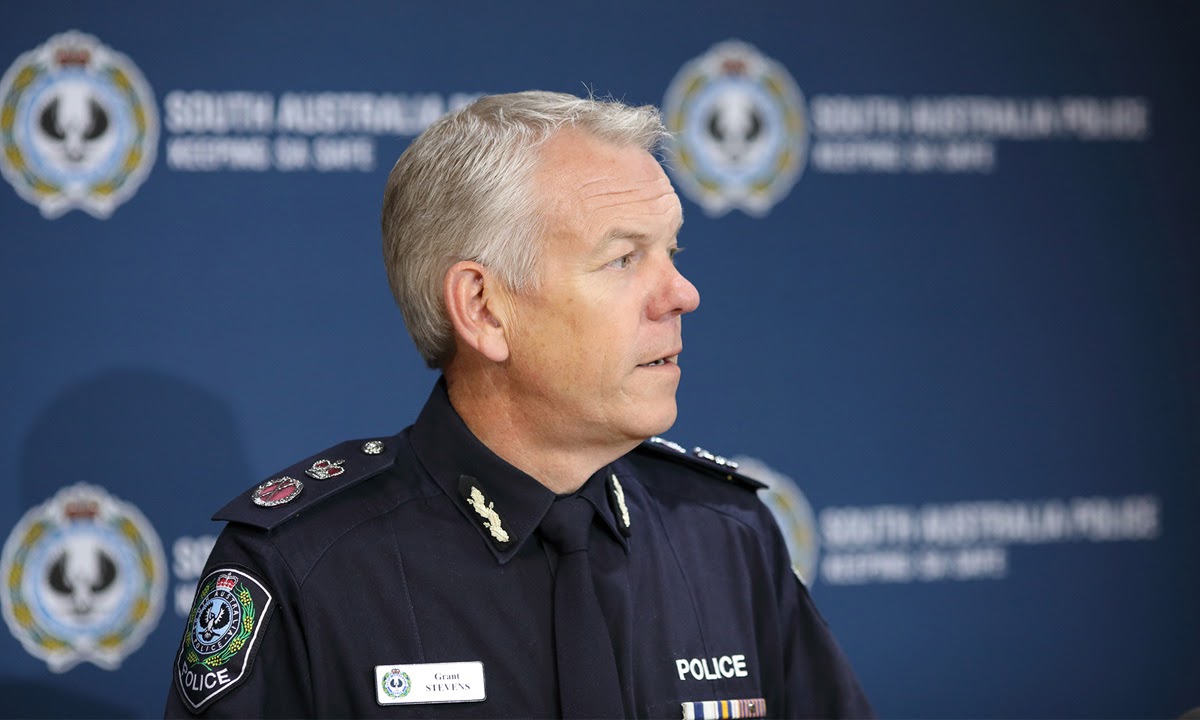SA’s courts need to protect those who protect us
Frontline SA Police officers face enough risks without their identities being exposed in the courts, writes Mark Carroll.


Picture this: an armed terrorist has barricaded himself inside an Adelaide shopping centre.
With him are 12 hostages: trapped, shocked, and fearing for their lives.
The terrorist is threatening to take innocent lives in the name of his warped extremist ideology. One hostage faces particular danger – the terrorist has threatened to take this individual’s life if certain demands are not met.
Special Tasks & Rescue police are on the scene. After careful consideration of all the risks and dangers, they make the brave and potentially life-threatening decision to storm the building. Some of the STAR Group offices make themselves human shields as they protect the hostages from the crazed terrorist.
One officer – whose training tells him that he’s in a prime position to take out the offender – expertly opens fire on the terrorist, with the threatened hostage still in close proximity. The shot is perfect. The terrorist is incapacitated, the hostage is unhurt, and the horrific siege is over.
The remaining STAR Group officers collect the rest of the hostages and whisk them away to safety.
If this situation sounds far-fetched, think again. Though South Australia has not had to confront terrorism of this nature, it has been the centre of many other sieges that have required specialist police intervention.
SA Police – both first-responders and STAR Group officers – are trained and ready to put their lives on the line to protect the public from terrorist or siege incidents exactly like this hypothetical one.
They should be afforded every available protection for taking on this role.
But earlier this year, the SA Coroners Court appeared to disagree. It ruled in favour of naming the STAR Group officers involved in the fatal 2015 Alexander Kuskoff siege.

SA Police Commissioner Grant Stevens. Photo: Tony Lewis/InDaily
Police Commissioner Grant Stevens had originally sought the protection of the officers appearing at the inquest, including closing the court when they were to be sworn in and only using their initials when they testified.
But Deputy State Coroner Anthony Schapel rejected the requests to keep the officers’ identities private.
It meant these officers would be potentially exposed to increased personal and security risks.
The only measures the coroner agreed to implement were a ban on the publication of the officers’ images, and access to key documents, as well as his written ruling.
Commissioner Stevens successfully appealed the decision in the Supreme Court last month.
His appeal had the full backing of the Police Association.
The court ruled that the order by the deputy coroner on the suppression order application “should be set aside and a suppression order made in the terms sought by the commissioner”.
It has strongly indicated that the Coroners Court should be closed during the swearing-in, the officers should be referred to by their initials only, and publicly available court documents and statements should be redacted so that only the officers’ initials are used.
There appears to be a critical lack of understanding of why police should be afforded every possible protection.
It must surely be acknowledged that the disclosure of the names of STAR Group officers would make them even clearer targets for determined criminals.
These are the officers we expect to respond to and confront the most dangerous situations in law enforcement. And, today, they do it in a very different world. The constant threat of terrorism has made police officers targets and the subjects of attack in Australia and overseas.
The inescapable reality is that harm could come to one or more of our members by exposing their identities.
Exposing the identities of STAR officers – or, indeed, any frontline police – is simply playing into the hands of those who would seek to do police physical harm.
The action Commissioner Stevens has so far taken to bring about more comprehensive protection is 100 per cent correct. It has the unconditional backing of the association and we urge the deputy coroner to follow the recommendations of the Supreme Court when the Kuskoff inquest resumes.
We’ll also continue to push for legislative changes so that no other officers face this danger again.
It also illustrates perfectly why we have opposed the introduction of ‘shoot-to-kill’ laws unless they come with appropriate indemnity.
We simply cannot have a situation in which any court can make a ruling which exposes police to increased risk from criminals such as terrorists.
Make no mistake – all our members are rightly accountable for their actions on so many levels. But that accountability should not include putting officers’ personal safety at risk.
Police deal with, and are best placed to understand, criminal behaviour.
The inescapable reality is that harm could come to one or more of our members by exposing their identities. If that were to happen, who would take responsibility?
Frontline officers who risk their lives protecting the community should not have to fear criminal retribution.
It’s time to protect those who protect us.
Mark Carroll is president of the Police Association of South Australia.




